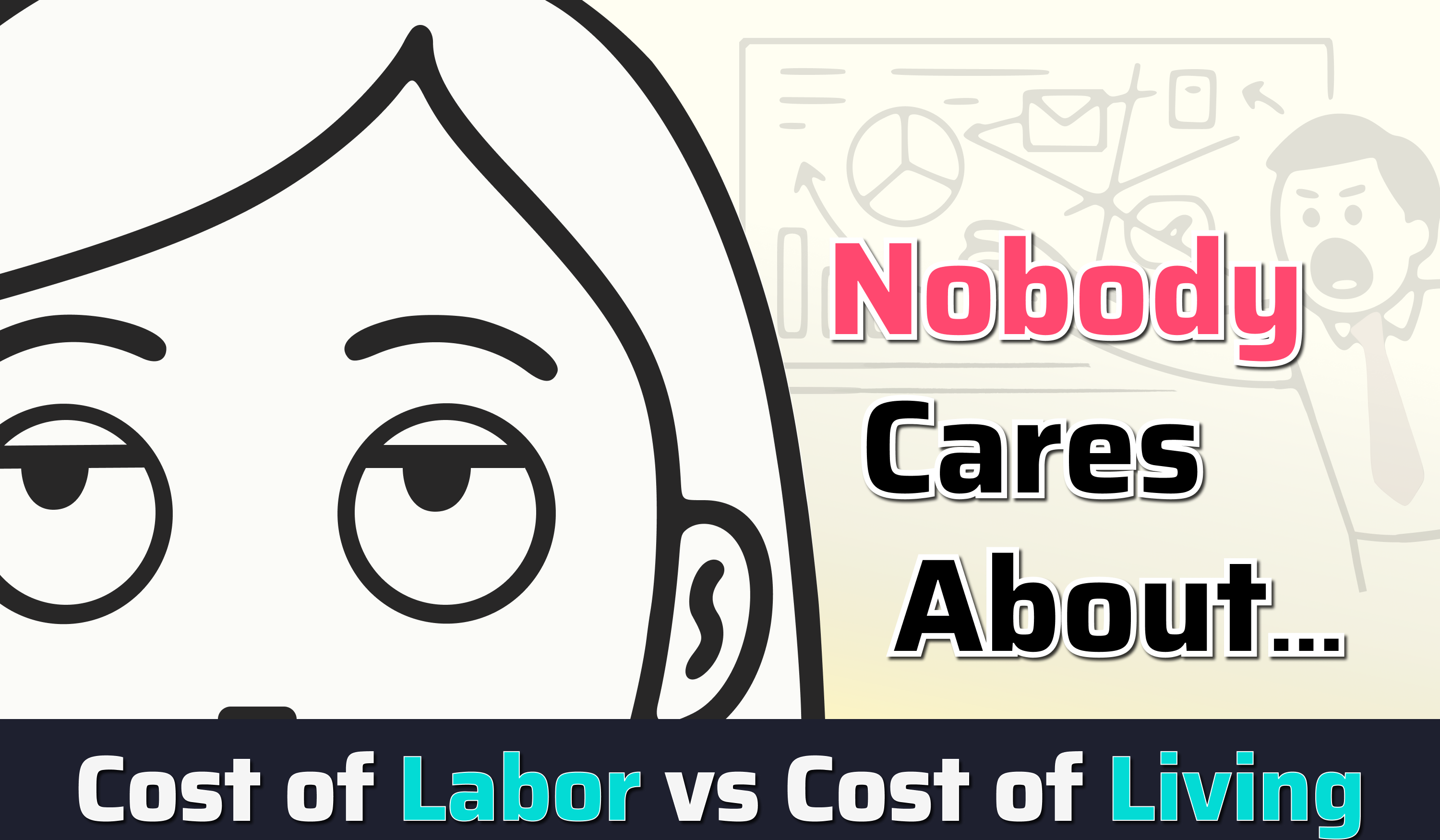Let’s start with a simple truth: the cost of labor is “right”. That’s how the market works. It’s how we price work, how supply and demand meet, how value gets translated into paychecks.
But here’s another truth: none of that matters to someone staring at their grocery bill, watching rent rise, or figuring out how to afford childcare.
People don’t work to compete in a labor market. They work to make a living. And that living is defined by costs — the real-world, non-theoretical, “how much does a gallon of milk cost this week” kind of costs.
So, when employees ask about pay and we launch into jargon about “cost of labor”, we’re not explaining - we’re deflecting. It’s the HR equivalent of a Jedi hand wave: “This is not the inequity you’re looking for”.
The Cost of Labor Is Economically Correct - and Emotionally Irrelevant
Economically, cost of labor is solid ground. It’s how markets function. If you pay too little, talent leaves. Pay too much, you destroy margin. Every economist, comp analyst, and finance partner will tell you that the labor market sets the price of work, not the cost of rent.
But most employees don’t know what “cost of labor” even means, even after your explanation. It’s insider language. It signals expertise, but not empathy. When we say it, we think we’re educating. What they hear is, “Your financial stress isn’t my problem”.
That’s not the message you want to send.
And yet, it’s not wrong for the business to hold its ground. Sometimes, you simply can’t afford to raise wages. That’s not cruelty. It’s math. Every organization makes tradeoffs between competitiveness, sustainability, and affordability.
We can’t hide behind terminology to disguise those choices. We owe employees a plainspoken explanation of why pay is what it is, and what that means for them.
Because it’s not the jargon that earns trust. It’s the honesty.
A Simple Framework for Honest Pay Conversations
Employees don’t expect us to rewrite economics. They just want acknowledgment that their lived experience is hard. They want to hear: “We know inflation hurts. We know prices are rising faster than wages. We’re doing what we can within what the business can afford”.
That’s not weakness — that’s humanity.
Here’s what honesty in pay communication sounds like:
- Acknowledge the tension. “We know costs are rising and it’s putting pressure on everyone. We’re evaluating how we can stay competitive while keeping the business healthy.”
- Explain the business reality. “We base pay on what the market pays for this work. That keeps us competitive and fair, even when we can’t adjust for every personal cost difference.”
- Affirm the human experience. “We understand it’s tough. Our goal is to balance fairness, competitiveness, and sustainability - not to ignore the reality people are living.”
- Share a vision of future success. “We’re really proud that people learn and grow here, and our team wants you to advance your career and grow your income.”
That’s the conversation employees deserve.
The Real Message: Be Direct, Be Human
Employees don’t need economic lectures. They need clarity.
They need to understand:
- What pay reflects.
- How it’s determined.
- Why it might not change as fast as they want.
That’s not a messaging problem to solve; it’s a leadership one. When companies tell the truth about how pay is set, people may not love the answer - but they’ll trust the honesty.
A Final Word
The cost of labor is real. The cost of living is real. Both matter, but for different reasons.
Employees feel the cost of living. Businesses manage the cost of labor. The tension between those two truths isn’t going away, but hiding behind jargon won’t fix it.
Because at the end of the day, nobody cares about the cost of labor or the cost of living.
They care about whether they can make a life that feels sustainable and whether their employer is honest about the choices behind the numbers.
That’s what people remember. Not the formula. Not the market data. The honesty.




